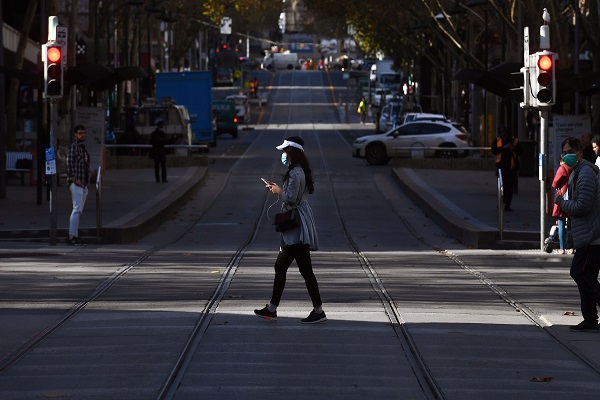Reports Melbourne Coronavirus Cluster Originated at Eid Party Could Stoke Islamophobia

“I’m really concerned, I’m thinking ‘here we go again’, scapegoating, marginalizing, unfairly stigmatizing the Muslim community,” said Adel Salman, the vice-president of the Islamic Council of Victoria.
“It just plays into the same narrative that Muslims are untrustworthy, that they aren’t like us, that they flout our rules, that they don’t have Australia’s interests at heart … Either they are a threat because they want to kill us and attack us or they are a threat because they are propagating the virus. It’s the same narrative.
“The Muslim community, we have been through this so often for many many years.”
The report in the Australian newspaper stated that the Coburg extended family cluster originated from a large family Eid celebration, an important Islamic holiday held at the end of Ramadan.
Eid al-Fitr is one of the most significant holidays in the Islamic year. In normal circumstances, large family groups would gather to celebrate, and around the world groups of hundreds or thousands would come together to pray.
The Coburg family cluster was first announced on June 14, involving an extended family spread between Melbourne’s north and south-east. It has since grown to at least 14 cases, including students at two primary schools in Broadmeadows and Pakenham.
The only source cited in the article was a receptionist at the Pakenham Medical Clinic, who confirmed a female patient who attended the clinic on June 10, and later tested positive for COVID-19, was believed to have contracted it at the family gathering.
Guardian Australia spoke to three receptionists at the clinic. One said they were told about the Eid connection by the health department, one that it was “what [she] heard around the office” and the other that she believed the department had not confirmed the source and that the patient had told the doctor the information.
The department contacted the clinic to inform the doctor who treated the woman that they were considered a close contact, but a spokeswoman for the premier said contact tracers would never have revealed information during one of these calls about where a patient contracted the virus.
The patient attended the clinic 17 days after Eid. The doctor has since been released from quarantine and tested negative.
Salman said on Thursday he had already been contacted by concerned members of the Islamic community.
“Even this morning I’ve received a message from a very senior member of the community and he was very concerned, he said ‘What’s going on? Can you do anything?’
“The month of Ramadan which, as we all know is a month for people getting together, family gatherings, family celebrations ... I mean the sacrifices that Muslims have to make [in forgoing normal community celebrations]. They did that willingly because that’s what had to be done, and I think that should be recognized,” Salman said.
“Muslims acted very responsibly. I could not say that every single Muslim family complied, obviously, but … all the information that we’ve received is that Muslims acted very, very responsibly.”
On Wednesday Victoria’s chief health officer, Brett Sutton, said misinformation spread on social media apps in languages other than English was a challenge when trying to ensure multicultural communities are informed on the dangers of the virus.
Salman said the Islamic Council had been working to combat that.
“That is definitely a factor. People are getting their information from various sources, some of it is not correct, some of it is outright dangerous,” he said.
“But it’s not just within the ethnic circles … there are some people who just have views that are misinformed and are getting that from the internet, it isn’t only in ethnic communities.’”
Salman said he thought the government could have done more to inform non-English-speaking communities.
“I do think more could have been done, for sure, but I’m not going to then say that is the cause of the outbreak of the cluster, there needs to be evidence to support that,” he said.
Source: The Guardian



